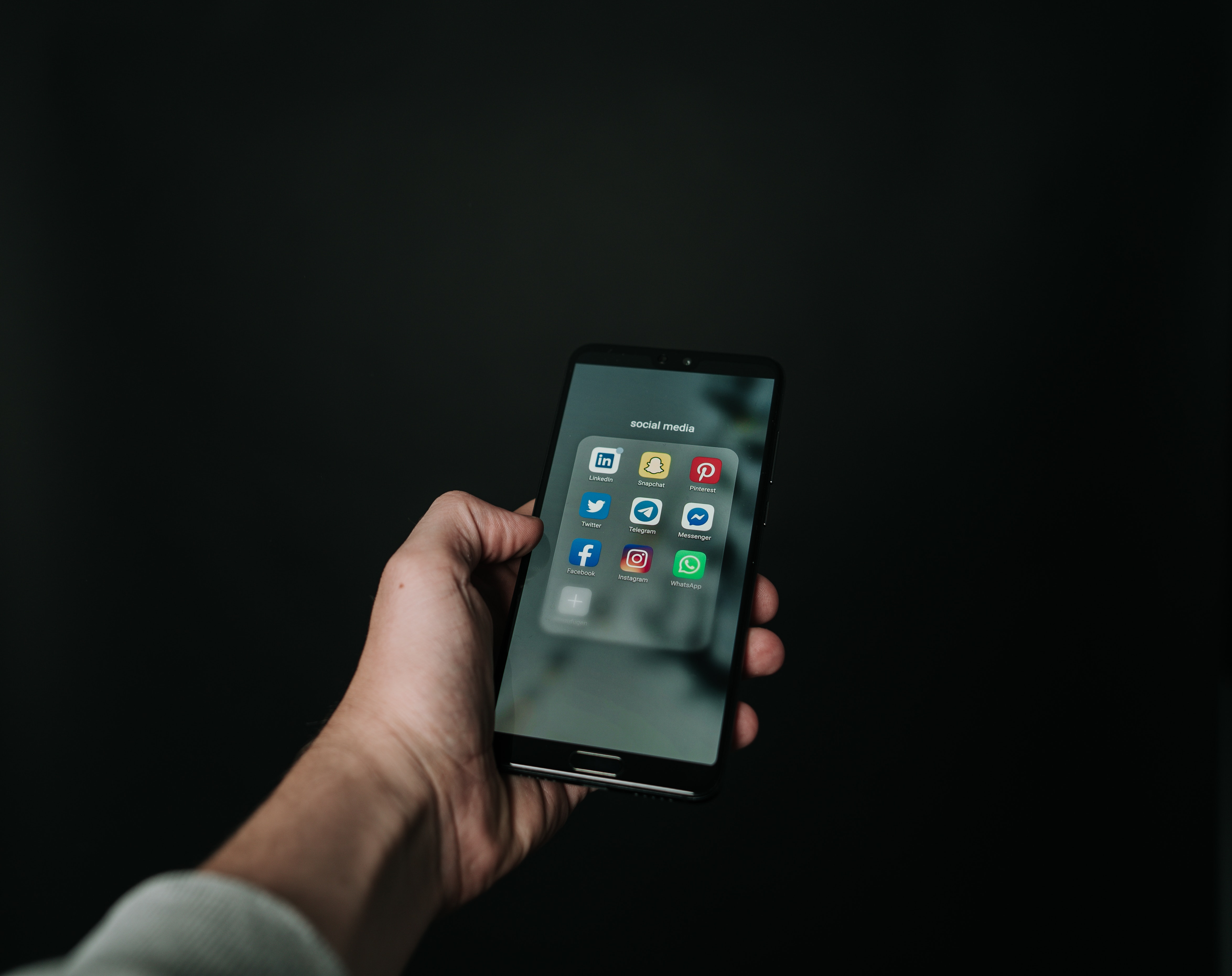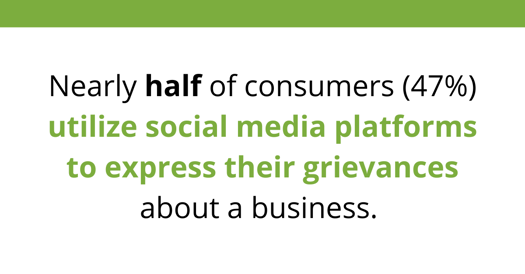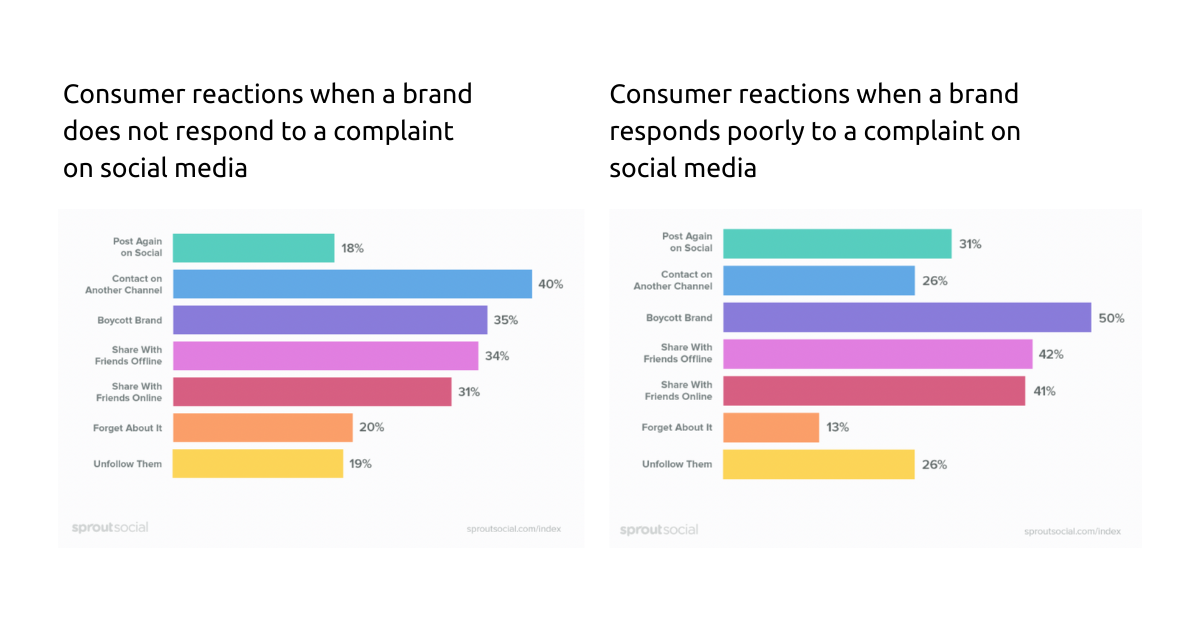The Evolving Impact of Social Media on Customer Experience

In the ever-evolving digital landscape, it's no secret social media has evolved into a significant platform for customer service and support. The sheer amount of users on Platforms like Facebook, Instagram, Twitter, and LinkedIn, have brought down the barriers between businesses and consumers, leading to a new paradigm where experiences are shared, evaluated, and reshaped in real-time. More than 75% of the world's population uses social media (aged 13+). We have all heard stories about how companies either failed to come through or did deliver exceptional service via social media. We have also seen the fallout of these results and how they can heavily influence consumers behaviors. Today, Consumers regularly expect brands to be responsive across all social channels and are not afraid to voice their issues for the world to see.
Why Does Social Media Matter?
Regardless of our personal feelings towards it, social media has undeniably become an integral part of our daily existence with over 4.74 billion users worldwide. The power dynamic between brands and consumers has been completely transformed by social media. According to research conducted by SproutSocial, nearly half of consumers (47%) utilize social media platforms to express their grievances about a business. Only on social platforms can individuals effortlessly compare a brand's support practices to those of its competitors, all within a few simple clicks. As a result, the role of social media in customer support has seen a surge in the past couple years.

The rise of social media in customer support is not without reason; there are various driving factors behind this shift.
-
The Connected Consumer: Today's consumers are digital natives who spend a significant portion of their daily lives online, especially on social media platforms. They prefer brands that are easily accessible, responsive, and ready to engage in real-time. Social media customer support perfectly fits this bill, offering instant responses and quick solutions.
-
The Expectation of Instantaneous Interaction: The digital age has ushered in an era of immediate gratification, where consumers demand immediate responses. Traditional customer service channels like phone calls or emails may not always satisfy this need for speed, hence the increasing shift towards social media platforms that can provide instant feedback and support.
-
The Power of Public Interaction: Social media's public nature allows businesses to demonstrate their commitment to customer satisfaction transparently. A well-handled customer query on a public platform like Twitter can serve as positive reinforcement for other customers and potential clients who might be watching.
With an increasing number of customers turning to social media for support, it becomes increasingly important to invest extra effort in maintaining prompt response times. It's crucial to be aware that failing to provide timely resolutions on social platforms can lead to consumers unfollowing your brand and picking a competitor. A social study found that among users aged 18 to 24, a significant majority (66%) exhibit higher brand loyalty towards the businesses they follow on social media. Similarly, for individuals aged 25 to 34, 60% express a preference for the brands they follow on Facebook, Twitter, and Instagram. A recent survey revealed that 60% of consumers expressed following businesses they frequently use services from on Facebook. Moreover, an additional 54% believed that businesses actively engaging with clients and followers on Facebook demonstrated a greater commitment to delivering superior service compared to those that did not.
Take Away: Consumers are more loyal to brands they follow on social media.
Why Poor Customer Service Affects Brands on Social Media
Negative posts: It is important to note that poor customer experiences can become major issues if they hit the right channels. Whether the issue comes from an in-store visit, website visit or a bad call, one social media post is all it takes to heavily affect a business.
One of the most famous cases to go viral: United Airlines baggage handlers damaged a custom-made guitar. The man whose guitar was destroyed made numerous calls and left messages to United support and eventually made a four-minute song about the incident and posted it on YouTube.
Within 48 hours, it had more than 24,000 views (now 10 million). The incident reportedly cost United Airlines $180 million.
Comcast has had a series of bad customer service complaints and is now known all across social media for having terrible customer service. There have been so many bad experiences shared on social media that there is a wikipedia page dedicated to why Comcast has bad service and all the examples of their shortcomings. Mostly made up of viral social media posts outlining the mistakes.
In 2021, a Peloton customer shared their experience of a malfunctioning treadmill that caused injuries to their child. The customer criticized Peloton's customer service response, and the incident gained attention on social media amassing thousands of interactions over the course of a few hours. The negative publicity resulted in a decline in Peloton's stock price and raised questions about the company's commitment to customer safety and support. This lead to numerous returns over the next 2 years.
In 2020, a video went viral on social media showing a passenger having a heated argument with Spirit Airlines staff over a missed flight. The incident highlighted the airline's customer service issues, triggering a wave of negative comments and complaints from customers who shared their own frustrating experiences with the airline. One shared incident lead to an avalanche of bad experiences that for the most part had been forgotten about or not posted about. This is a great example of how social media can trigger a sudden outpouring of feedback from previous customers.
These 7 companies went viral for having terrible customer service and they still haven't recovered. Check out: 7 Companies Known for Having the Worst Customer Service.
The wrong response is worse than no response at all: According to Sprout Social, when a brand fails to respond to an initial complaint, consumers tend to extend them the benefit of the doubt. This is reflected in various ways, such as posting again on social media (18 percent), attempting to contact the company through alternative channels like email or phone (40 percent), or simply forgetting about the issue altogether (20 percent).

However, if a brand responds poorly to a customers post, we see an increase of boycotting the brand, sharing with others online, sharing with others offline, and unfollowing the brand all together.
How Poor Customer Service Affects Brands on Social Media
-
Negative reviews and ratings: Dissatisfied customers can leave public reviews and ratings on various platforms, including review sites, Facebook, Google, and industry-specific platforms. These negative reviews can harm your brand's image, as potential customers often rely on reviews to make purchasing decisions.
-
Loss of trust and credibility: Consistent poor customer service experiences shared on social media can erode trust in your brand. Trust is a vital factor in customer loyalty and attracting new customers. When potential customers come across negative experiences shared on social media, they may choose to avoid your brand altogether, leading to a loss of credibility.
-
Customer backlash and boycotts: If a brand's customer service is consistently unsatisfactory, it can trigger widespread customer dissatisfaction. In such cases, customers may organize boycotts or start campaigns encouraging others to avoid your brand. Social media provides a platform for these movements to gain momentum and negatively impact your business.
-
Damage to brand image: Negative experiences shared on social media can create a lasting impression of your brand, overshadowing any positive attributes. People often remember negative experiences more vividly and are more likely to share them, further damaging your brand image.
-
Increased customer acquisition costs: When your brand's reputation is damaged due to poor customer service, it becomes more challenging to acquire new customers. The cost of acquiring new customers may increase as you need to invest more resources in rebuilding trust and countering negative sentiment.
-
Difficulty in attracting and retaining talent: A brand's reputation extends beyond its customers to potential employees. If your company's poor customer service is widely known and discussed on social media, it can make it difficult to attract and retain talented individuals who may be hesitant to associate themselves with a negatively perceived brand.
What Can You Do? Measures and Preventive Action
The number one thing companies can do to ensure positive interactions on social media is to provide stellar customer service across all channels. This is easier said than done. As a brand, these interactions will inevitably come as you provide your daily customer support. Here are some tips to handling complaints and praise on social media.
-
Acknowledge positive feedback: Respond to positive feedback promptly and express your appreciation. A simple "thank you" or a personalized message goes a long way in building customer loyalty and encouraging further positive interactionsRegularly monitor social media for brand mentions and engage with customers even when they haven't directly tagged your company. Responding to unsolicited positive feedback shows that you actively listen and appreciate your customers' support.
-
Take action right away, but don’t immediately go on the defensive: Aim to respond to customer inquiries and complaints on social media platforms as quickly as possible. Timely responses show that you value your customers' time and concerns. Set clear response time goals and monitor your response rate to ensure consistency.
-
Provide helpful resources: Direct customers to self-help resources, FAQs, or knowledge bases that can address common issues. Offering relevant resources demonstrates your commitment to helping customers find solutions independently and saves time for both parties.
- Always stay respectable and professional: Responding respectfully and professionally helps portray your brand in a positive light. It demonstrates that your company values professionalism, customer satisfaction, and treats customers with respect. Consistently positive interactions can enhance your brand's reputation and build trust among your audience.
- Continuously improve based on feedback: These interactions can be a great learning point for your company and can identify shortcomings. Analyze customer interactions on social media to identify recurring issues or pain points. Use this feedback to improve your customer service processes, products, or policies. Demonstrating a commitment to continuous improvement can result in positive interactions and build trust with your customers.
The evolution of social media is not just a tool for promotion or marketing but a vital reflection of your brand's commitment to customer satisfaction. It serves as an interactive mirror, displaying your customer service philosophy and practices to the world in real-time. Through prompt, empathetic, and effective responses to customer concerns, and proactively engaging with your audience, you can shape a positive perception of your brand. Remember, every tweet, comment, or direct message is an opportunity to demonstrate your brand's values, build trust, and foster long-term relationships. The art of mastering customer service on social media can set your brand apart in today's digital age. So embrace this powerful platform and let it serve as a testament to your exceptional customer service, one interaction at a time.
At VIPdesk we view Social Media CX as a critical part of our Omni-Channel capabilities which has a specific place in each customer journey. Please contact us if you like to assess how your brand can benefit from our solutions.


